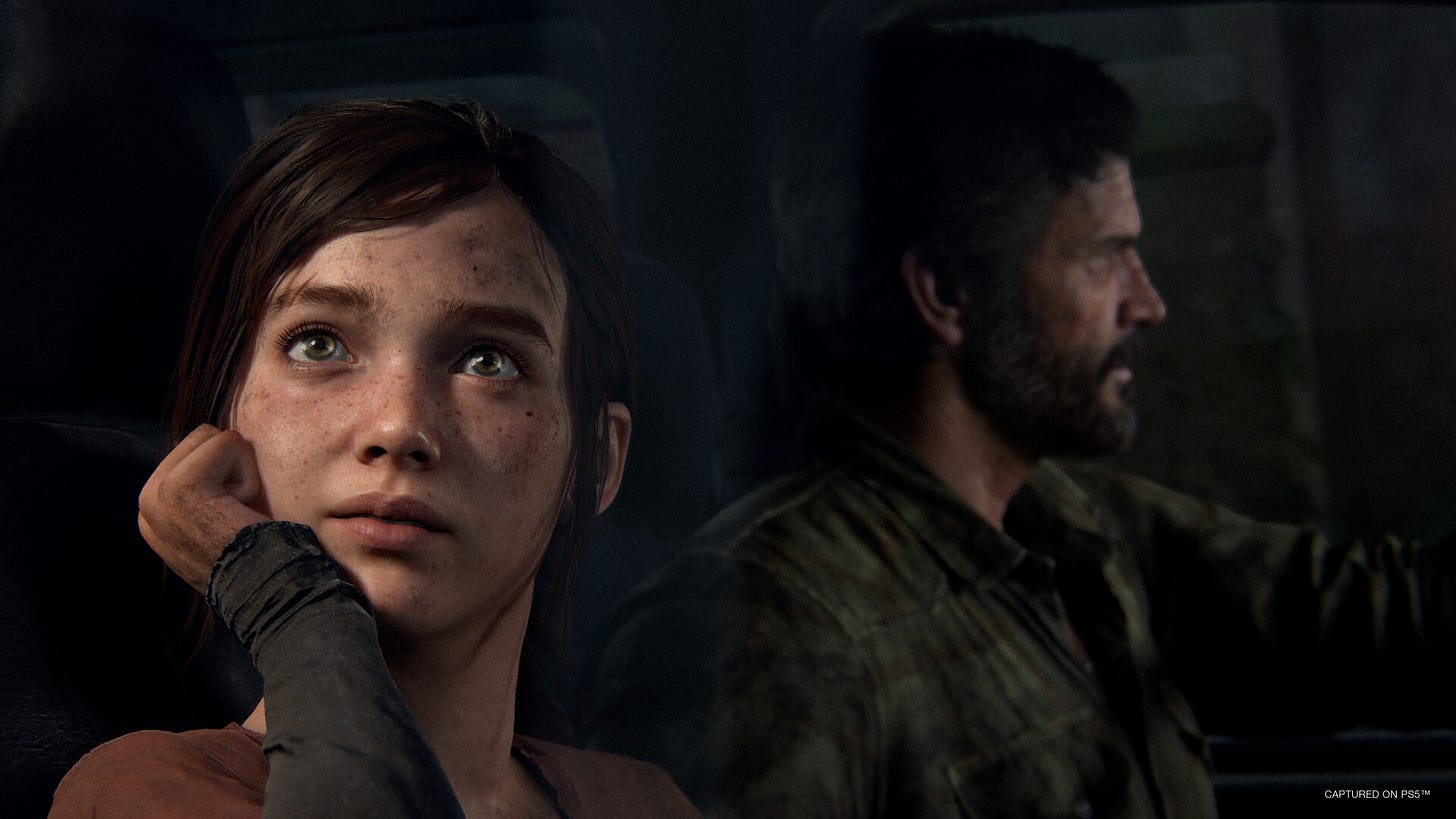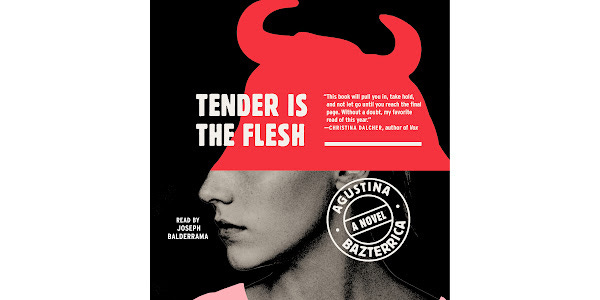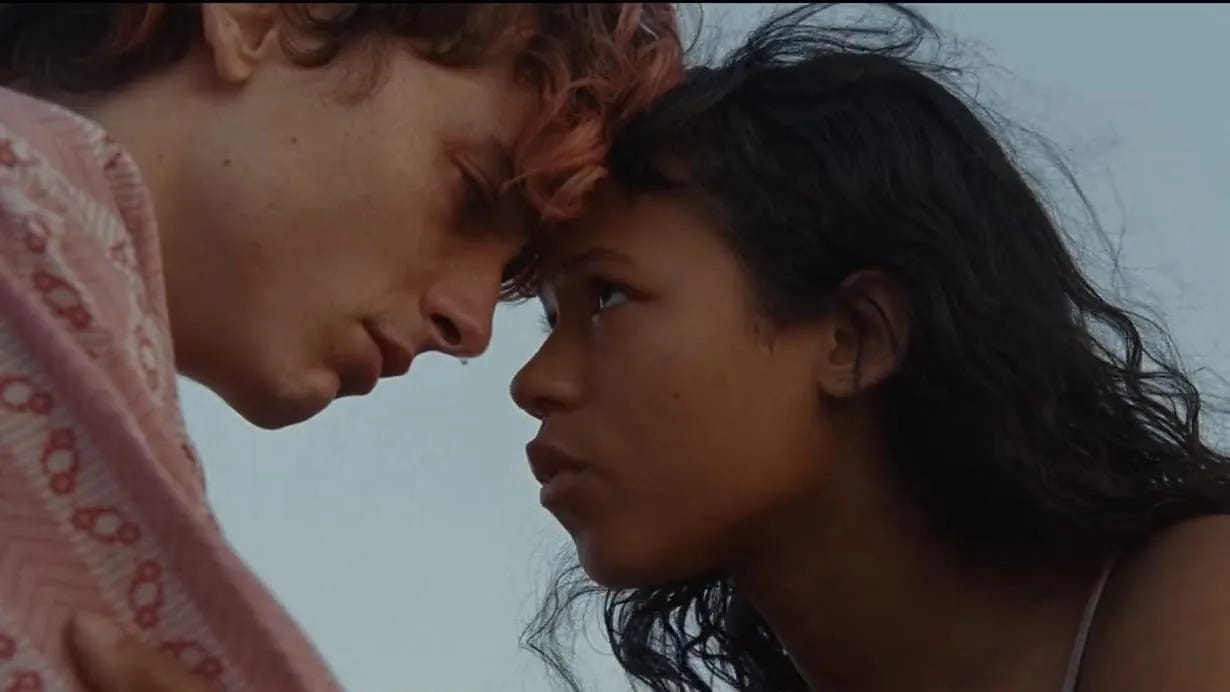Even the thought of cannibalism is entirely horrific. The practice of eating human meat is globally illegal, has lead to the mind-eating disease Kuru, and one of the most taboo subjects going.
Yet, as I listened to the final track of Ethel Cain’s 2022 narrative album, Preacher’s Daughter—depicting the protagonist’s final reflection on her life as she is cannibalised by a former lover—I noticed how often the topic of flesh-eating popped up in my recent media consumption.
Ranging from the hauntingly brutal 2017 novel Tender Is The Flesh, to the more tender 2022 movie adaptation of romantic horror Bones And All, there has been an influx in discourse around, and the creation of, media exploring the psyche of cannibals. The subject has wormed its way into the horror genre so seamlessly that texts exploring cannibalism even star A-list (typically glamorous) actors such as Megan Fox and Timothee Chalamet—so why the sudden rush of interest?
Fiction has always exaggerated the contemporary fears of its audience. As Stephen King writes in his essay Why We Crave Horror Movies:
“We also go [to see horror movies] to re-establish our feelings of essential normality; the horror movie is innately conservative, even reactionary. Freda Jackson as the horrible melting woman in Die, Monster, Die! confirms for us that no matter how far we may be removed from the beauty of a Robert Redford or a Diana Ross, we are still light-years from true ugliness.”
The horror genre, in particular, is not benign. It has to evolve within the petametres of what its current audience finds scary at the time. Arguably, an increasingly difficult feat for a media-savvy society familiar with the tricks of filmmaking and the conventions of storytelling. As such, narratives chase after real world events.
Possibly the most influential cultural landmark of the 2000s, the 9/11 sent shockwaves through modes of storytelling. The result? An influx of zombie apocalypse, dystopian, and world-ending disaster plots. Movies such as The Day After Tomorrow (2004); 2012 (2009); Contagion (2011); and shows like The Walking Dead (2010) saw continued success as audiences fixated on the idea of a collapsing society.
And this trend could have seen a longer lifespan—if our fears weren’t actualised.
The truth is, videogames like The Last of Us (2013), don’t feel as shocking in 2025. The fun of navigating a fictional world destroyed by a contagious, mind-rotting, fungal infection is somewhat dampened when the player has experienced national-lockdowns and quarantine IRL.
Where the rising fascination with cannibalism comes into play:
Cannibalism isn’t new. On the contrary, flesh-eating features heavily in pre-pandemic media, particularly to illustrate how far humanity has fallen from order. In The Last of us, there is a feared cannibalistic cult dubbed ‘The Hunters’. In The Walking Dead, there is ‘The Terminus Group’. In The Road, McCarthy describes "cannibals" or "inhumane survivors" to be a threat after Earth has faced total ecological collapse. And so on.
So there were breadcrumbs scattered across media, already.
Almost as a defense against the almost too-close-to-home aspects of disaster narratives, post-pandemic audiences seem to be shifting the focus: zooming in on this common motif of cannibalism, and how it indicates the extreme breakdown of humanity—but in a less literal sense.
The Overconsumption of Media:
The western world has a insatiable appetite for screen-time. The average device owner accesses dozens of newsfeeds at their fingertips, most curated by an algorithm that rewards fear-mongering and misinformation, all designed to fuel dopamine addiction.
Scrollers love to be shocked and baited: false information is 70% more likely to be shared than true information on X, for eaxmple1.
One huge pitfall of the internet is the virtual gladiator rings it has created. Social media scrollers are lured by shock horror, countless scandals, and cancel culture—often ripping other users apart from behind a keyboard.
This normalised dehumanisation is not a far cry from depictions of cannibalism in horror films we’re familiar with:
Ahead of its time, Videodrome (1983) is a horror which explores the relationship between the human body and media, where a new form of media, "Videodrome," causes people to literally merge with their televisions. In American Psycho (1991), Patrick Bateman’s sadistic violence and cannibalism critiques a society obsessed with appearance, status, and material wealth, where human lives are treated as disposable commodities.
More recently, Agustina Bazterrica also pointed an accusatory finger at her square-eyed audience. In her 2017 novel Tender Is The Flesh, translated by Sarah Moses into English in 2020, Bazterrica has created a cannibalistic world which grotesquely illustrates the the suffocating relationship between media, its consumer, and its orchestrator.
In the novel, mass-scale cannibalism is government sanctioned, detailing a disturbing reality where human breeding programs, slaughterhouses and meat processing factories are normalised.
‘Many people have naturalized what the media insists on calling the Transition … they've all naturalized cannibalism …’
A large part of why the ‘Transition’ has been so successfully facilitated is due to the role of the media, and society’s willingness to accept its dictation.
The protagonist (Marcos)’s sister is an allegory this idea of a society dependent on media and government instruction. She scold Marcos for walking outside without an umbrella, when the government has stated that the virus can be transferred from bird excrement, but he rejects her with harsh statements such as:
‘the government wants to manipulate you, that’s the only reason it exists’
and
‘Have you ever stopped to think that maybe the umbrella industry saw an opportunity and the government got in on it?’
This particular type of ignorance—one where individuals reject critical thinking or free thought in lieu of seeking belonging with the masses and largely circulated, regurgitated information determined by a few select sources—is particularly relevant of the relationship between the media and the consumer in the 21st century. And the demographic exploited by fake news only increases as media literacy decreases.
The parallels between the cannibalistic society of Tender Is The Flesh, and our real-life, are chilling. In a digital age, desensitised by overstimulating floods of information, too-often do we dehumanise others for our own entertainment.
For example, the morbid and voyeuristic fascination with the exploitative ‘true crime’ genre regularly gains massive ratings. The Netflix series Dahmer (2022) racked up over 1 billion hours of views within the first 28 days of its release, despite its contents completely disregarding any sensitivity towards the serial-killer’s victims remaining families2. This lack of compassion from Netflix not only reveals their own corruption, but also that of its audience. After all, Netflix knew that the controversial fictionalisation of an infamous killer would be profitable, and the watchers proved their point—the show spent over 10 weeks in Netflix’s global ‘Top 10’ category3.
This insatiable consumption of media, going so far as to dehumanise, disrespect, bastardise, deform, and dissect real people, is a cannibalistic urge displayed on an alarmingly hegemonic level.
"What I wanted to do is expose the extreme, the most extreme form of dehumanization...and show how it's not so different from what happens in our world every day."
Bazterrica for The New York Times, "In ‘Tender is the Flesh,’ Humans Are the Meat," 2020.
And you did, Bazterrica, you did.
Personal Autonomy:
If, when you think of women in horror, you picture some iteration of a helpless victim, you’d be subscribing to the traditional model we’ve been fed for majority of cinematic and literary history. However, new tides within the genre have popularised female-villains, such as Last Night In Soho (2021) and the X trilogy: X (2022), Pearl (2022) and MaXXXine (2024).
Cannibalism is for the girlies: A significant portion of female (debatable) villains within horror exist in texts about cannibalism. And this is no coincidence—if the cannibalism in Tender Is The Flesh and American Psycho symbolises the commodification of bodies, these fictional female cannibals are reclaiming autonomy in consuming their oppressors.
Think Jennifer's Body (2009) and her cannibalistic urge to eat boys who she can lure using her sexual appeal. This film as become known as a subversion of the classic trope of the female horror victim, as Jennifer was cursed with cannibalistic urges only after her attempted murder at the hands of a boy-band backfired. All of Jennifer’s victims are men who viewed her as a vessel of their own desire, so she played uno reverse. Similarly, In A Certain Hunger (2020), Summers critiques the cultural commodification of women’s bodies as her protagonist attempts to reclaim power of her own body with every man she brutally murders and consumes.
Lucy Rose writes for The Guardian:
‘I understand now why cannibalism is having such a moment in our culture – particularly with women. […] Catharsis for every time they’ve made themselves small in a room they deserved to take up space in; for every time someone’s autonomy has been stripped away from them. Cannibalism narratives are a rejection of not only the beauty standards of mainstream culture, but also a symbol of autonomy and defiance against that system that uses food (something fundamental to our survival) to police and control bodies.’
The Guardian, ‘How writing about female cannibals changed my relationship with food’, January 25th 2025.
Female cannibals don’t always exclusively eat men, however.
Human consumption and its connection with sexuality is also, in alternate texts, presented as a self-hating, inward manifestation of desire. In dark-comedy Lovesick (2016), the protagonist Elizabeth fights to keep her cannibalistic urges in check whilst she falls in love, and Yellowjackets (2021) features female-on-female cannibalism.
In a similar vein, Camille DeAngelis’ heart-wrenching 2015 novel Bones and All is a beautifully tragic amalgamation of love and fear, tapping into the raw, gruesome emotions of the human experience through the lens of cannibalism.
"I think cannibalism is just a metaphor for things that we often don't want to talk about, like desire and hunger and longing."
Electric Literature, Camille DeAngelis on Writing About Cannibals and the Need for Connection, 2015.
Thematic waves oscillate between self-loathing, addiction, compulsion, and trauma as we follow Maren on her journey towards self-acceptance. Cursed with an inherited compulsion to eat people, her mother has abandoned her in the first few pages, and she is forced to live as an outcast on the run. Falling in love with Lee, another ‘eater’, they embark across the US to find answers about who they are, why they are, and what they can do about it, all the while wrestling with their conflicting guilt and need to eat other people.
In this novel, cannibalism could be a metaphor for addiction, mental illness, sexual desire, queerness, or combination all them all, but, regardless of interpretation, I think this text has resonated with so many because it delves into the shared experience of fighting against the boundaries of a society you did not create.
"I wanted to explore what happens when the line between self-preservation and monstrosity becomes blurry."
The Rumpus, The Rumpus Interview with Camille DeAngelis, 2015.
Post-pandemic, the 2022 movie adaption has expanded the fanbase of this cult classic, whilst simultaneously, women across the globe facing Gilead-esque regression of personal autonomy (such as the overturning of Roe vs Wade, or the Taliban’s continued erasure of women’s rights). As the horrors persist on the news, we’re identifying more and more with texts fighting against sexual oppression.
Cannibalism is an allegory for ultimate dehumanisation.
In a post-pandemic world where the cultural landscape of society has forever been altered, the general shared feeling of a loss of empathy, connection, and the abandonment of traditional societal values, can all be reflected by the popularisation of texts exploring cannibalism—where the extremity of it all forces audiences to re-think what it means to be human.
It’s not all doom and gloom though—I love the art which is being produced exploring body horror and consumption. As I expect cannibalism will continue to rise within the horror genre, I also look forward to other interpretations the subject might lend to.
As always, thank you for reading Media Soup!
Read More:
Science, "The spread of true and false news online" (2018).
as reported by Netflix in their Q3 2022 earnings report.
according to Variety, The Hollywood Reporter, and Business Insider.












This is so interesting and something I haven’t really thought much about but the increase in this kind of media has definitely been noticeable. Great read!!!